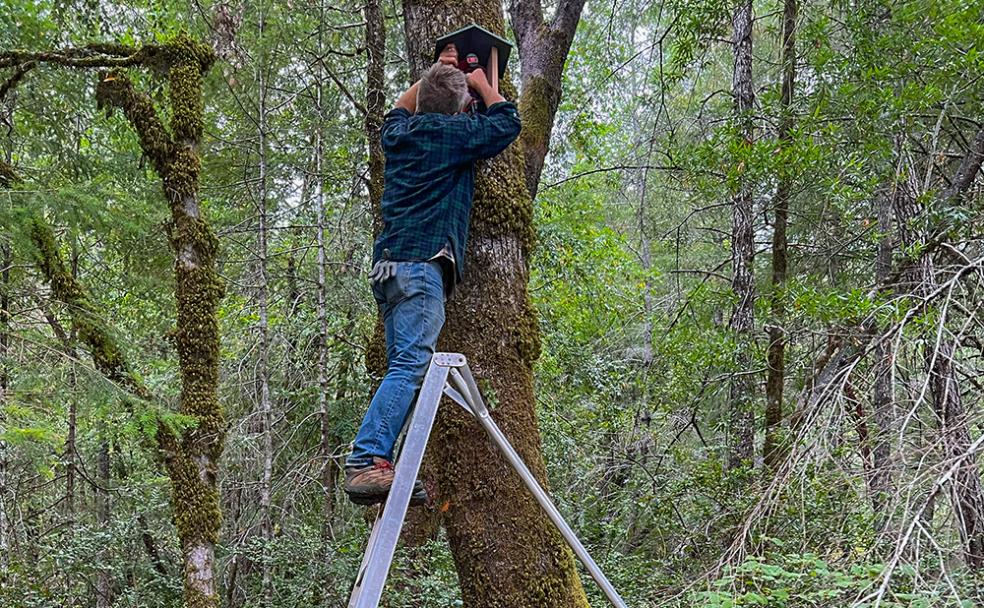
Wildlife Professor Matthew Johnson is working with Cannabis for Conservation Executive Director Jackee Riccio (‘16, Wildlife and Archaeology) to develop standards and criteria for the Wildlife Conscious Certification (WCC) and collect data to show measurable improvement on small farms that implement WCC practices.
Johnson says he sees the certification as “a gold standard” for wildlife conservation on cannabis farms, and continued peer-reviewed scientific study will push the bar ever higher.
“A lot of farmers want to do what’s best for the environment and invite native species back onto their land, but most don’t have the education or the capacity to do the necessary research,” says Riccio, who co-founded the nonprofit Cannabis for Conservation, a resource for farms working to conserve and establish habitats for special-status and declining species. “Our relationships with Wildlife Conscious Certification-participating farmers have been very positive.”
The research team is counting the number of birds, bats, and pollinators, such as bees, to establish baselines on four pilot farms and two control farms in Humboldt County. Farmers who are participating in the program have welcomed the researchers onto their farms, and are eager to learn what the research shows.
In October, the WCC team and farmers planted pollinator patches and hedgerows with native plants, with assistance from hedgerow consultants and Cal Poly Humboldt undergraduate and graduate students. Next summer (and beyond), they’ll compare wildlife counts to determine whether the hedgerows and other enhancements made a difference in the diversity and abundance of wildlife onsite.
“We’re not trying to document the effects of cannabis cultivation on wildlife in general, but to hopefully confirm that the addition of what we’re calling ‘wildlife enhancements’ can be made to small cannabis farms,” Johnson says, “And that those enhancements can provide a conservation benefit to wildlife.”
The project marks Johnson’s first foray into cannabis research. He sees it as an opportunity to provide positive direction and steer cannabis cultivation, which California legalized in 2018, away from increasingly common industrial practices such as monocultures and large indoor grows.
“Everyone who studies agriculture wrings their hands about the industrial monocultural system that’s been around for 100-plus years,” Johnson says. “With cannabis farming, we have an opportunity to start a different trajectory toward smaller, more heterogeneous, and more diverse farms that don’t use intense pesticides, fertilizers, and agrochemicals.”
The cannabis industry has some work to do when it comes to sustainability, Johnson adds. “But like any enterprise, it’s not a monolithic, homogenous thing. Some farmers are community-minded and try to do the right thing for the environment. This is a program that’s meant to uplift and amplify what some of the great farmers are doing.”